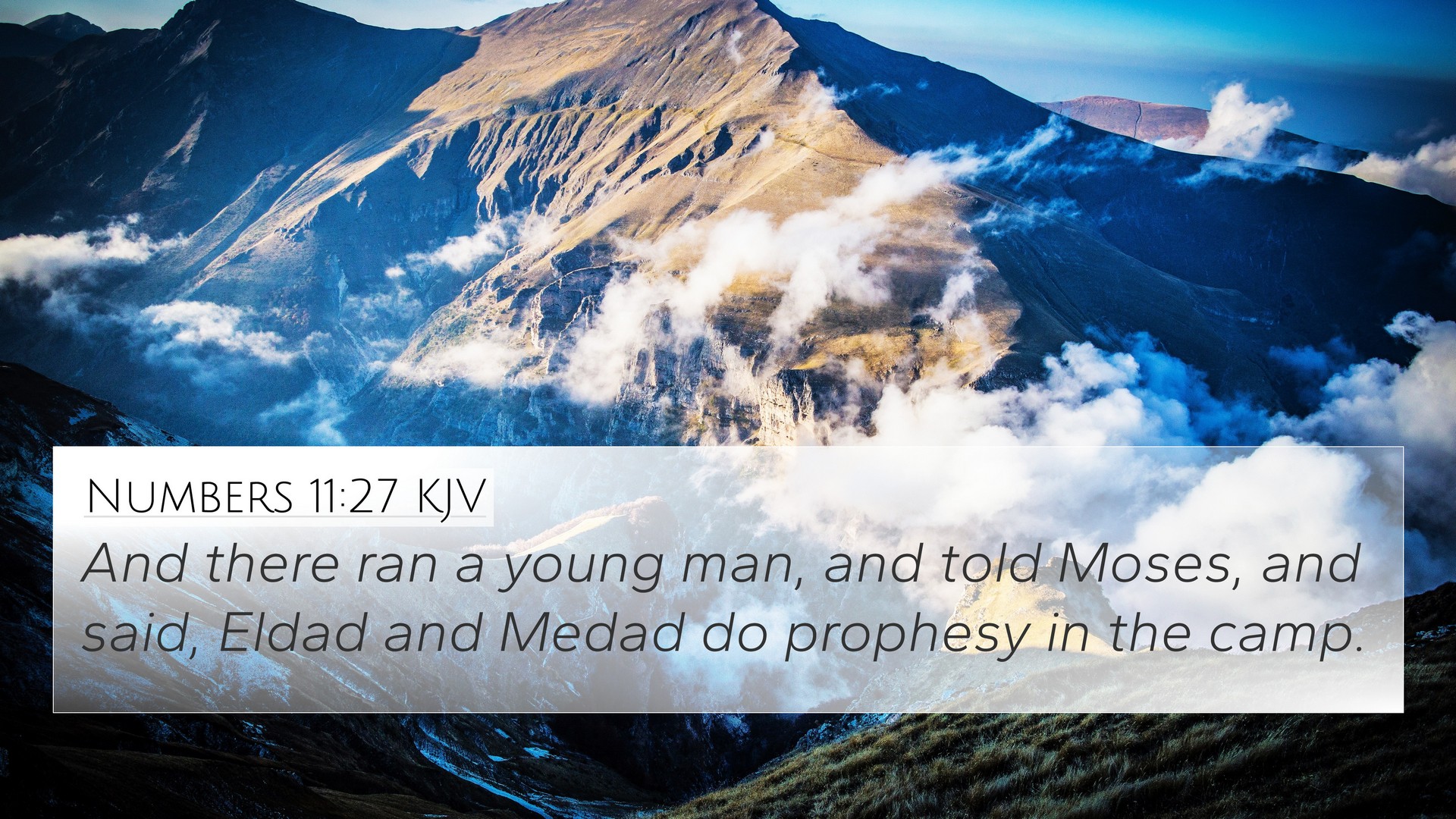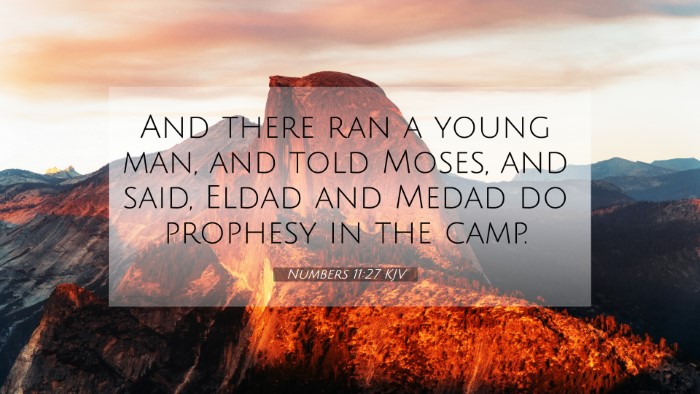Understanding Numbers 11:27
This passage from the book of Numbers recounts a moment of crisis in the leadership of Israel, revealing important insights into the nature of prophetic authority and communal responsibility.
Verse Context
Numbers 11:27 states: "And there ran a young man, and told Moses, and said, Eldad and Medad do prophesy in the camp." This narrative captures a significant event where two elders, Eldad and Medad, begin prophesying, which raises concerns among other leaders.
Interpretation and Meaning
According to Matthew Henry, the occurrence illustrates the spontaneous nature of God’s spirit, which cannot be confined by traditional boundaries. Eldad and Medad were not present at the appointed gathering, yet they were empowered to prophesy, demonstrating that divine authority and gifts are not limited to established structures.
Albert Barnes adds that this event serves as a reminder that God's work is not confined to the formal leadership of Moses. He highlights the importance of recognizing God's sovereignty and freedom in appointing His messengers, even outside the established framework.
Adam Clarke notes that this moment sparked jealousy within the camp, reflecting a human tendency to feel threatened when others receive divine favor or authority. The reaction of the young man who reported this to Moses emphasizes a pivotal theme: the challenge of accepting God’s choice of messengers and His methods.
Thematic Connections
The passage invites readers to explore several important themes:
- The Nature of Prophecy: Prophecy is not limited to those in recognized positions of authority.
- Divine Sovereignty: God chooses His messengers as He wills, irrespective of human conventions.
- Community Dynamics: Jealousy and rivalry can emerge in shared spiritual experiences.
- Leadership and Delegation: Effective leadership requires openness to others' gifts and strengths.
Bible Verse Cross-References
The following biblical verses relate to the themes in Numbers 11:27. They help illustrate connections between scriptures and provide deeper insights into the text:
- Acts 2:17-18: "And it shall come to pass in the last days, saith God, I will pour out of my Spirit upon all flesh..." - This passage echoes the idea of widespread prophecy.
- 1 Samuel 10:5: "After that thou shalt come to the hill of God, where is the garrison of the Philistines..." - Refers to the Spirit coming upon men at the hill of God.
- Jeremiah 23:21: "I have not sent these prophets, yet they ran: I have not spoken to them, yet they prophesied." - Illustrates God's control over true prophecy.
- Matthew 7:22-23: "Many will say to me on that day, 'Lord, Lord, did we not prophesy in your name?'" - Highlights the authenticity of God's chosen prophets.
- 1 Corinthians 12:4-11: "Now there are diversities of gifts, but the same Spirit..." - Discusses the distribution of spiritual gifts among believers.
- Hebrews 1:1-2: "God, who at sundry times and in divers manners spake in time past..." - Explores the various ways God communicates with His people.
- Exodus 18:21-22: "Moreover thou shalt provide out of all the people able men, such as fear God..." - Discusses the importance of appointing gifted individuals in leadership roles.
Conclusion
Numbers 11:27 serves as a vital reminder of God’s unrestricted grace and the diversity of His call. The collective learning from this verse emphasizes the importance of humility and openness within the community of believers. When engaging in tools for Bible cross-referencing or thematic Bible verse connections, exploring such verses enhances understanding and enriches spiritual study.


